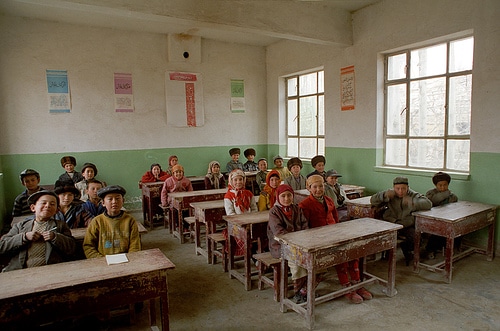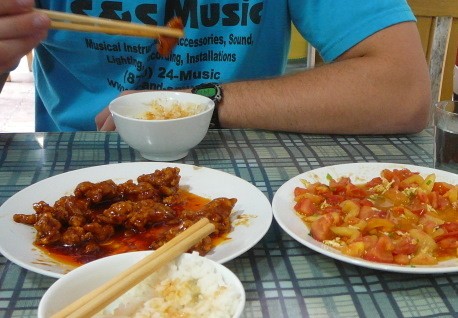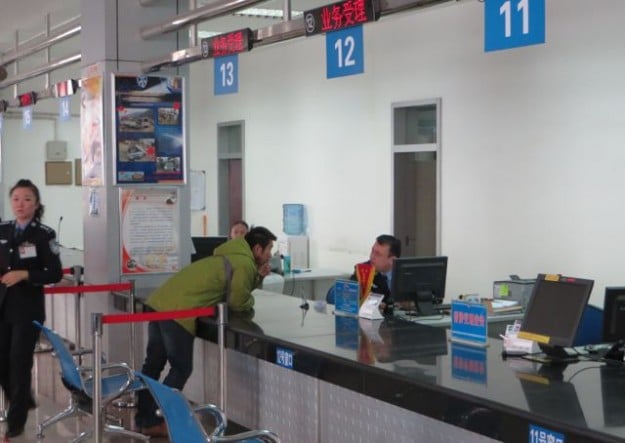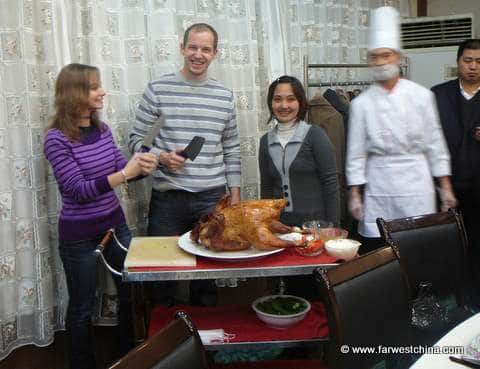I’ll never forget stepping off the airplane for the first time at the Beijing airport and thinking to myself “What the *#@&$ did I just get myself into?” I didn’t know a lick of Mandarin other than ni hao, and prior to leaving I probably couldn’t have found Xinjiang, the province that was to become my new home, on a map. I was about as green as they come, excited about the prospect of teaching English in another country but not a clue as to what I was doing. Over the years I’ve seen many others have this same experience and one friend caught me off guard when he asked an absolutely brilliant question: What do you wish somebody would have told you about teaching English in China before you arrived?

What I’d love to share below is a summary of what I told my friend, broken out into 5 things I wish I had been told. Hopefully it can be of use to you as you consider a move out here!
#1 Learn to Say “No”…Respectfully

Learn to say No
For the first few months I lived in China, I got calls almost weekly asking me to tutor this child, translate this paper or be a judge for this English competition. I hate saying no, so my calendar booked up quickly. Not soon afterward I almost had a nervous breakdown. The most important advice I would give anybody moving to China is learning how to say “no”, even if you hate doing so. Set your limits, make them known, and stick to them. Once I regained my sanity, I decided that I would only tutor a set number of students per semester and I would only say yes to an engagement if it built my guanxi (see #5 below). Slowly people began to respect my limits (i.e., my friends wouldn’t be giving out my phone number to prospective students), and I learned to enjoy the extra-curricular activities instead of dreading them.
#2 “Face” Matters – Even in the Classroom

A Uyghur school full of children
The worst question you can ask in a Chinese classroom is “Do you understand?” Why? Because 95% of the time every head in the classroom will nod yes. The Chinese concept of “Face”, maintaining one’s social standing or reputation, will keep most all of your students from telling you the truth. Instead, in any situation where a question could cause potential embarrassment or where criticism (not punishment) is necessary, try to do so in a more private setting. You will be appreciated for it.
#3 Chinese Food Will Surprise You

Eating REAL Chinese food
Perhaps I’m the only one who was incredibly naïve, but I actually thought that I would recognize Chinese food once I got here. What? No sesame chicken? No fortune cookie for dessert? Looking back, I laugh at how clueless I was. The good news is that the initial shock of “So this is Chinese food!?” will soon be followed by a feeling of “Whoa…this is so much better!” China divides its food into eight different cuisines – and that doesn’t even include the incredible Xinjiang food I’ve come to love. Be adventurous and try everything at least once.
#4 If At First You Don’t Succeed…

Dealing with the red tape in China
There are the lucky few who succeed on their first attempt at something here in China (visa, registration, opening a bank account, getting a driver’s license, etc.), but if you’re like most of us it will be a painful process. Red tape in China is inevitable, but often it has more to do with the person you’re dealing with as opposed to any actual red tap. If you find yourself at a dead end or at the receiving end of a “no”, you can do one of the following that often works:
- Don’t leave until that person helps you – Sometimes it’s easier for them to dismiss you, but if they know you won’t leave they might actually help.
- Find somebody else – If possible, find another person and plea your case again.
- Play Dumb – this is low, but it works. Even if you understand why they said no, keep asking as if you don’t. Essentially I try to make the hassle of helping me look like a better option than not helping me.
#5 It’s All About Who You Know

Cutting the turkey on Thanksgiving in China
Xinjiang is quite a remote province and sometimes it’s hard to get things you want – like a turkey for Thanksgiving. One year, however, a friend who worked in the local government wanted to thank me for work I’d done and shipped in a live turkey just for the holiday. Being the best teacher you can be is certainly something to strive for, but it will only get you so far in China. Your relationships, often referred to as “guanxi” in China, matter just as much if not more than the quality of your teaching. Unfortunate or not, it’s true. Find a way to help the headmaster of the school and make him or her look good. Get to know your co-workers. Make an effort to befriend the police both for your neighborhood and your district if possible. In the end, these relationships could save your rear…or at least get you a good Thanksgiving dinner!
Anything else you would add?
Josh Summers first moved out to Xinjiang, China in 2006. He currently lives in the capital of Urumqi and has used his experience to help others find teaching jobs in Xinjiang. You can contact him at josh [at] farwestchina [dot] com.
All photos courtesy and copyright Josh Summers
